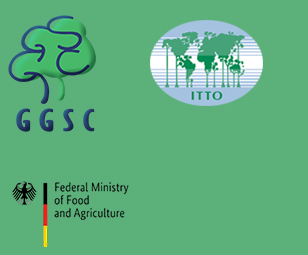
Indonesia
Indonesia seeks rollback of US reciprocal tariff on furniture
The government is pushing for the elimination of a reciprocal tariff imposed by the United States on Indonesian furniture and craft products, a minister said.
Trade Minister Budi Santoso explained that all furniture products entering the US are subject to a sectoral tariff of 3 percent. This would surge to 35 percent if the US's 32 percent reciprocal tariff were to be imposed.
According to Santoso, the government is negotiating for an easing of the reciprocal tariff. The value of Indonesia's furniture and craft exports to the US currently stands at 1.64 billion US dollars.
The government is also working on deregulating exports and imports to support the ease of doing business.
As part of drafting the deregulation policy, the Ministry of Trade has held discussions with associations and the Ministry of Forestry so that wood derivative products, such as furniture and crafts, do not require V-Legal documents (wood product export licenses).
According to the minister, these documents should only be mandated for countries that specifically require them, such as members of the European Union.
Indonesia becomes first country to adapt ILO OSH standards in forestry sector
Indonesia made history as the first country in the world to adopt and adapt the Occupational Safety and Health (K3) Code in the forestry sector prepared by the International Labor Organization (ILO).
This achievement was marked by the official launch of the national translation and adaptation of the ILO Code on Forestry OSH in Jakarta, Monday (28/4/2025).
Minister of Forestry Dida Mighfar Ridha emphasized that the implementation of K3 in the forestry sector is a balance point to ensure forest sustainability as well as worker safety.
ILO Director for Indonesia and Timor Leste, Simrin Singh, encouraged Indonesia to utilize the sophistication of artificial intelligence (AI) to improve the implementation of K3 in the forestry sector, in line with this year's global K3 theme which focuses on the use of AI in supporting occupational safety.
Malaysia
Malaysia broadens trade horizons amid global tensions and US tariffs
Malaysia is stepping up efforts to strengthen trade ties with emerging markets in a bid to reduce reliance on traditional partners like the United States, said Investment, Trade and Industry Minister Tengku Datuk Seri Zafrul Abdul Aziz.
Speaking at the launch of the Ministry of Investment, Trade and Industry's (MITI) Q1 2025 Performance Report Card, Tengku Zafrul said Malaysia is deepening engagement with BRICS nations (Brazil, Russia, India, China, South Africa), the MERCOSUR bloc in South America, and fast-growing regions in Africa.
Addressing the impact of the US's latest round of tariffs, Tengku Zafrul identified eight industries bearing the brunt of the measures: E&E, machinery and equipment, medical devices, furniture, palm oil and rubber, pharmaceuticals, automotive, and aerospace.
Rush for furniture as tariffs loom
American buyers of Malaysian furniture have asked that the products be sent to them before July in view of the uncertainty over US tariffs, says the Malaysian Furniture Council.
“Our customers in the United States have asked us to ship as much as possible during this 90-day suspension window – ideally before July,” said the council’s deputy president, Matthew Law.
He noted that local manufacturers face rising costs, including a 14.2% hike in electricity tariffs from July 2025, higher EPF contributions and increased foreign worker levies.
He said the weak ringgit against the US dollar is also a major concern.
Amid these challenges, US demand has begun to decline, signalling a market slowdown.
Deputy Plantation and Commodities Minister Chan Foong Hin said the ministry remains cautiously optimistic as US negotiations continue, and is actively supporting talks by providing data and insights to Miti.
“At the same time, we are intensifying efforts to strengthen trade relationships with emerging markets and diversify our export destinations,” he told The Star.
In the furniture sector, Chan stressed that the government will tighten enforcement to prevent Malaysia from being used as a transhipment hub for timber and timber products originating from countries hit with higher US tariffs.
Among the steps being taken are stricter documentation processes, especially for the issuance of Certificates of Origin (COO).
Thailand
Thailand to ease foreign business ownership rules
Thailand is moving to reform its restrictive foreign investment laws. Recently, the Cabinet approved urgent revisions to the Foreign Business Act B.E. 2542 (1999), tasking the Ministry of Commerce with drafting amendments.
One of the most anticipated changes is the potential increase in the allowable foreign equity threshold, which is currently limited to 49 percent in many restricted sectors. The Ministry of Commerce is now reviewing the list of sectors and exploring adjustments to the ownership structure rules.
Thailand to strengthen origin verification of goods exported to the U.S.
Thailand's Department of Foreign Trade had expanded the list of products exported to the U.S. that require strict origin verification from 49 to 65 items, covering a total of 224 HS codes. For products on this list, such as furniture, the U.S. demands clear and specific code information, rather than just broad descriptions, and failure to comply may result in losing the export opportunity.
It is reported that the list may be subject to further additions or reductions in the future. It will be submitted to the cabinet for deliberation and will be announced by the Department of Foreign Trade after approval.
China
China's wood import volume declined in April
In April 2025, China's wood imports decreased by 2% month-over-month to 5.34 million cubic meters, a 15% reduction compared to the same period in 2024. The import value also declined, falling by 4% to $1.052 billion, a 22% contraction year-on-year.
Log imports remained sluggish: In April, log imports amounted to 2.93 million cubic meters, a sharp 19% decrease year-on-year, with the import value falling to $460 million, a 27% decline year-on-year. Among the major log suppliers, imports from New Zealand and Russia decreased by 4% and 15%, respectively, while imports from Papua New Guinea plummeted by 24%. Notably, Bosnia and Herzegovina, and Slovakia saw a significant surge in wood exports to China, increasing by 273% and 116% year-on-year, respectively. Latvia and Japan also recorded growth of 45% and 26%, respectively.
Besides, sawnwood imports reached 2.41 million cubic meters, the highest level in the first four months of 2025. However, the volume fell by 10% year-on-year, with the import value decreasing by 18% year-on-year to $587 million.
China's furniture and parts exports declined by 6.8% in the first four months
According to data released by the General Administration of Customs of China, the cumulative export value of furniture and its parts from January to April 2025 reached 155.88 billion yuan, a year-on-year decrease of 6.8%. The top 10 destination countries for furniture exports in the first four months are: the United States (-9.47% year-on-year), the United Kingdom (+5.69%), Japan (-4.14%), Australia (-9.92%), Germany (+7.49%), Singapore (+1.02%), South Korea (-33.58%), Canada (+0.7%), the Netherlands (+7.28%), and Malaysia (-6.56%).
Other popular export destinations include: France (with an export value of 2.297 billion yuan, up 0.52% year-on-year); Mexico (1.236 billion yuan, down 4.56%); and Vietnam (992 million yuan, up 0.03%).

| E-mail:ggsc@itto-ggsc.org | Tel:86-10-62888626 |


Sigh Up for Emails |
|